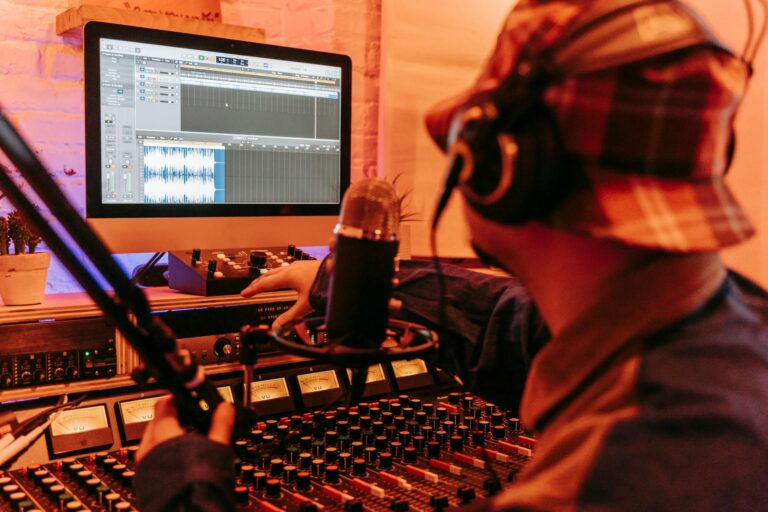How the Pending US Tariffs Impact the Music IndustryWhat Are Tariffs and Why Are They Being Imposed?How The US Tariffs Impact the Music IndustryHow Tariffs Could Affect ManufacturersRetailers and Distributors: Facing the SqueezeImpact on Musicians and ConsumersEducational and Institutional ImpactsThe Broader Economic Ripple Effect in the IndustryIndustry Response and AdvocacyWhat Can Musicians and Businesses Do?ConclusionAdditional…
Continue Reading How the Pending US Tariffs Impact the Music Industry (2025)
Chart-Topping Deals: Musicians Who Sold Their CatalogsTaylor Swift Sells Her Catalog to Shamrock HoldingsBob Dylan’s Historic Sale to Universal Music Publishing GroupPaul Simon Sells His Songs to Sony Music PublishingStevie Nicks Sells Majority Stake in Her Catalog to Primary WavePrince’s Estate Sells Rights to Sony Music PublishingAnalyzing the Trend of Musicians Who Sold Their CatalogsWrapping…
Continue Reading Chart-Topping Deals: Musicians Who Sold Their Catalogs
How To Earn 1000 Dollars Per Month From MusicSetting the Foundation for SuccessIdentifying Your Niche in the Music IndustryBuilding Your Brand and Online PresenceDiversifying Your Revenue StreamsSelling Merchandise and Limited EditionsLeveraging Streaming Platforms and RoyaltiesEngaging with Your AudienceBuilding a Strong Social Media PresenceHosting Live Events and Virtual ConcertsCollaborating with Other Artists and BrandsNetworking and Collaborating…
Continue Reading Tips On How To Earn 1000 Dollars a Month from Music in 2024
Five Most Influential Jazz Musicians Of All TimeLouis Armstrong: The Father of JazzLouis Armstrong’s Early Life and CareerLouis Armstrong’s Legacy and InfluenceDuke Ellington: Master of Jazz CompositionDuke Ellington’s Musical Style and InnovationsDuke Ellington’s Impact on Jazz CultureElla Fitzgerald: The First Lady of SongElla Fitzgerald’s Vocals and InterpretationElla Fitzgerald’s Collaboration and InfluenceMiles Davis: The Innovator of…
Continue Reading Legends of Jazz: Unveiling the Most Influential Jazz Musicians of the 20th Century
Top 10 Most Influential Music Producers of All TimeWho are the Most Influential Music Producers of All Time?1. Rick Rubin: A Legend in Music Production2. George Martin: The Fifth Beatle3. Max Martin: The Hitmaker Behind Many Chart-Topping Singles4. Dr. Dre: Shaping the Sound of West Coast Hip-Hop5. J Dilla: A Pioneer in Beat-Making6. Pharrell Williams:…
Continue Reading 10 Most Influential Music Producers of All Time
Why Owning Masters Matters: Insight into Musical Artists with RightsWhat are Master Recordings and Why do Artists Want to Own Them?Understanding the Value of Master RecordingsImpact of Owning Master Recordings on Artist’s FutureComparison between Artists Who Own and Don’t Own Their MastersWhich Musical Artists Actually Own Their Masters?Case Study: Taylor Swift’s Battle for Her MastersWell-Known…
Continue Reading Musical Artists Who Own Their Masters and Why It Matters (2024)
What’s The Difference Between Music Reports vs SoundExchange?What is SoundExchange and how does it work?How does SoundExchange collect royalties?What is the role of SoundExchange in the music industry?How does SoundExchange benefit songwriters and artists?What is Music Reports and how does it work?How does Music Reports collect royalties?What is the role of Music Reports in the…
Continue Reading Music Reports vs SoundExchange | What’s The Difference? (2024)
Songtrust vs BMI | Which One Should You Sign Up For?What is Songtrust and BMI?Understanding SongtrustIntroduction to Broadcast Music Inc (BMI)Comparison of Songtrust vs BMIWhy Join Songtrust or BMI?Benefits of Joining SongtrustAdvantages of Being a BMI MemberDo I Need Songtrust for Music Publishing?How Do Songtrust and BMI Collect Royalties?Mechanical Royalties in SongtrustUnderstanding Performance Royalties in…
Continue Reading Songtrust vs BMI | What Is The Better Choice? (2024)
What’s The Difference between Songtrust vs MLC?Overview of Music LicensingUnderstanding Mechanical LicensesRole of a Music Licensing Collective (MLC)Introduction to SongtrustKey Differences Between MLC and SongtrustTypes of Licenses OfferedHandling of Mechanical RoyaltiesAccessibility for Independent ArtistsBenefits and Drawbacks of Songtrust vs MLCRoyalty Collection ProcessSupport for Music Reports and Tunecore PublishingComparison of Fees and Services OfferedChoosing the Right…
Continue Reading Songtrust vs MLC | Which One Is Best? (2024)
MLC vs The Harry Fox AgencyWhat is the Mechanical Licensing Collective (MLC)?What is the role of MLC in music licensing?How does MLC differ from traditional licensing agencies?What are the benefits of registering with MLC?What Is The Harry Fox Agency (HFA)?What services does HFA provide for music publishers and songwriters?How does HFA administer mechanical licenses?What is…
Continue Reading MLC vs The Harry Fox Agency | What’s The Difference? (2024)
IntroductionFive Secrets Music Business Insiders Don’t Want You To KnowRegister Your Music Everywhere ASAP You Don’t Need A Big Label To Earn MoneyBuild An Email List Of Your FansContent Is KingPrioritize Practical Education Introduction Beneath the glamorous surface of the music industry lies the secrets music business insiders don’t often discuss. Here are five things…
IntroductionWhat is the AI Fraud Act and Why Was it Introduced by the US Congress?Overview of the AI Fraud ActReasons Behind the Introduction by US CongressImpact on the Music IndustryHow Does the No AI Fraud Act Affect the Music Industry?Response from RIAARepresentative Salazar’s SupportPotential Impact on Intellectual Property2024: Key Year for the No AI Fraud…
Continue Reading How The No AI Fraud Act Impacts The Music Industry (2024)











